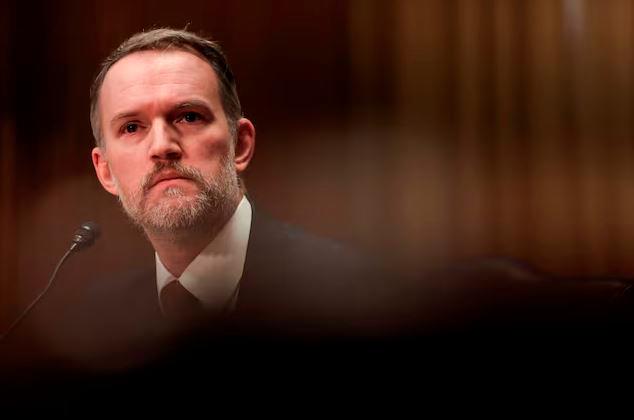WASHINGTON: U.S. Trade Representative Jamieson Greer said on Tuesday he had launched an investigation into Brazil’s “unfair” trading practices, a week after President Donald Trump threatened a 50% tariff on imports from Latin America’s largest economy.
Trump’s trade war, launched since starting his second term in January, sets tariffs on nearly all U.S. trading partners, aiming to reorder the global economy and end decades of what he calls discrimination against the United States.
The USTR investigation, announced last week by Trump, will decide if Brazil’s treatment of digital trade and preferential tariffs, among others, is “unreasonable or discriminatory and burdens or restrict” U.S. commerce, Greer said.
“At President Trump’s direction, I am launching a Section 301 investigation into Brazil’s attacks,“ he added in a statement.
Among victims of such attacks he cited U.S. social media and other companies, as well as workers, farmers, and technology innovators he described as harmed by Brazil’s “unfair trading practices”.
Following extensive consultations, Greer added, “I have determined that Brazil’s tariff and non-tariff barriers merit a thorough investigation, and potentially, responsive action.”
Trump justified his 50% tariff from August 1, well above the rate of 10% initially proposed, with a demand for an end to the trial of former President Jair Bolsonaro for allegedly plotting a coup.
The high tariff for Brazil surprised many trade experts since its U.S. goods imports exceed its exports, and because Trump linked the rate so clearly to Bolsonaro’s trial.
Brazil offered no immediate reaction to news of the U.S. investigation. On Monday, Vice President Geraldo Alckmin said it had yet to receive a response from Washington to an offer it made in trade talks two months ago.
During his first term, Trump used Section 301 of the Trade Act of 1974 to justify a spate of tariffs against China. It was also used to investigate other countries for digital services taxes on U.S. tech firms.
In a statement, USTR said Brazil disadvantaged U.S. firms by setting lower tariffs on exports of other trading partners and accused it of failing to battle corruption.
It added that Brazil also charged substantially higher tariffs on U.S. ethanol exports, and “appears to be failing” to enforce laws against illegal deforestation, which it said harmed the competitiveness of U.S. timber producers. - Reuters









